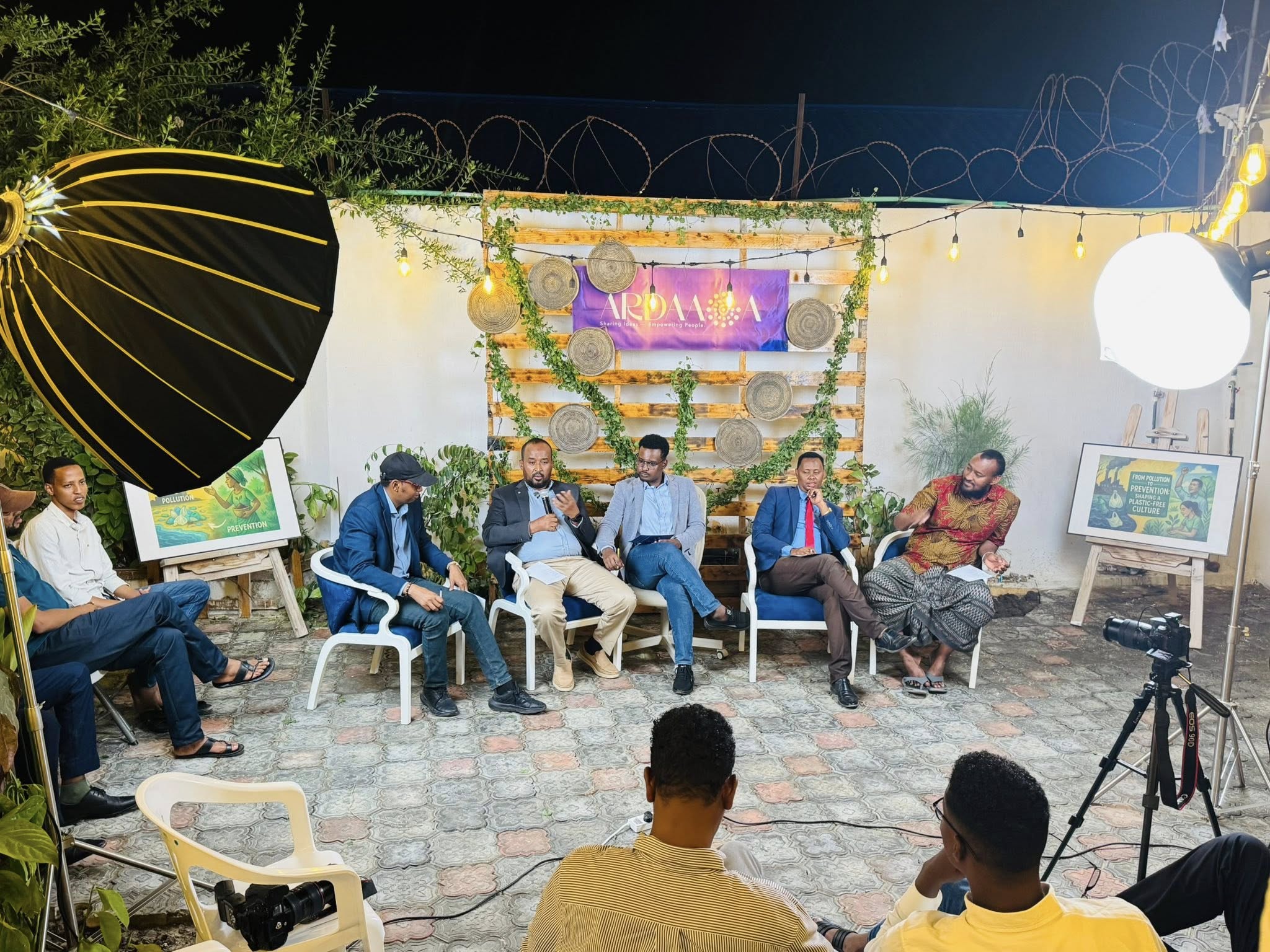
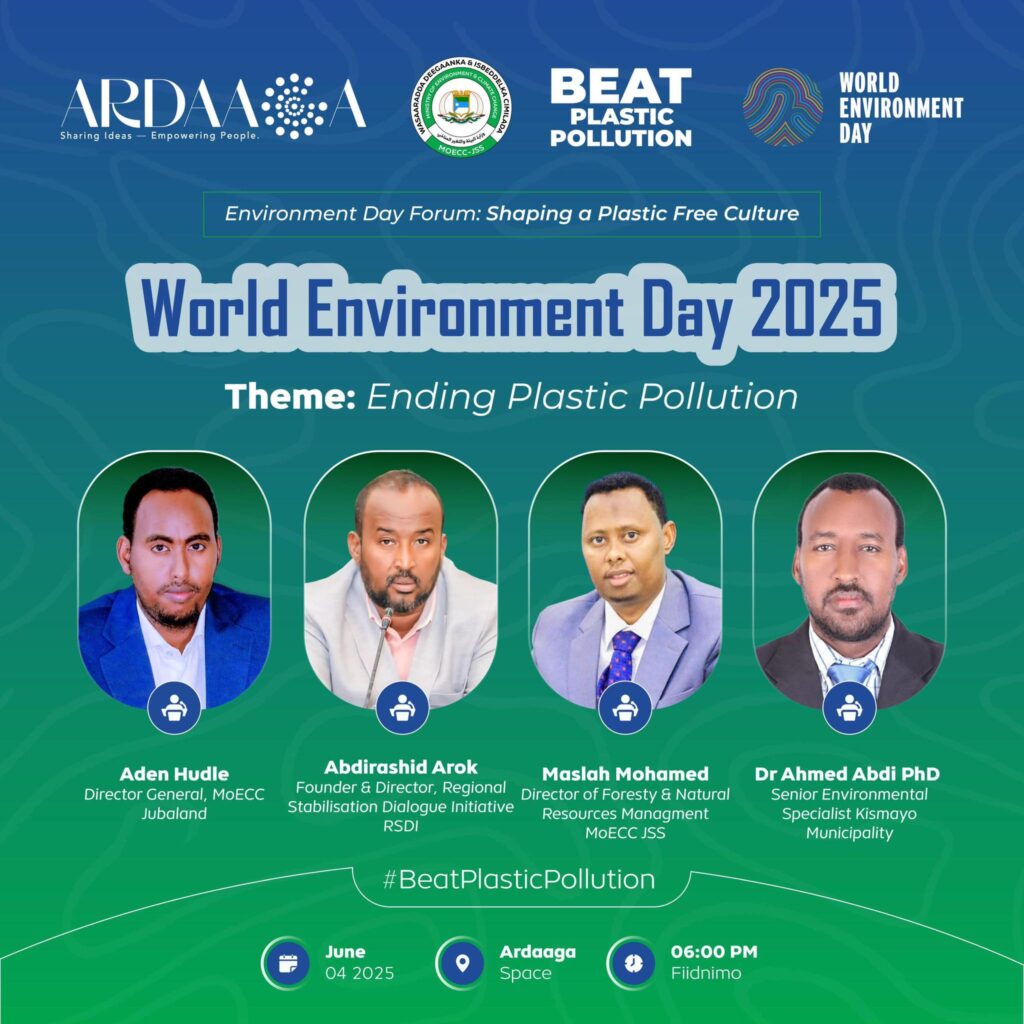
In observance of World Environment Day, Ardaaga hosted a pivotal program that brought together key leaders and environmental experts to address the critical challenge of plastic pollution. The discussions highlighted the urgent need for action and showcased the collective commitment to fostering a cleaner, more sustainable environment across Jubaland.
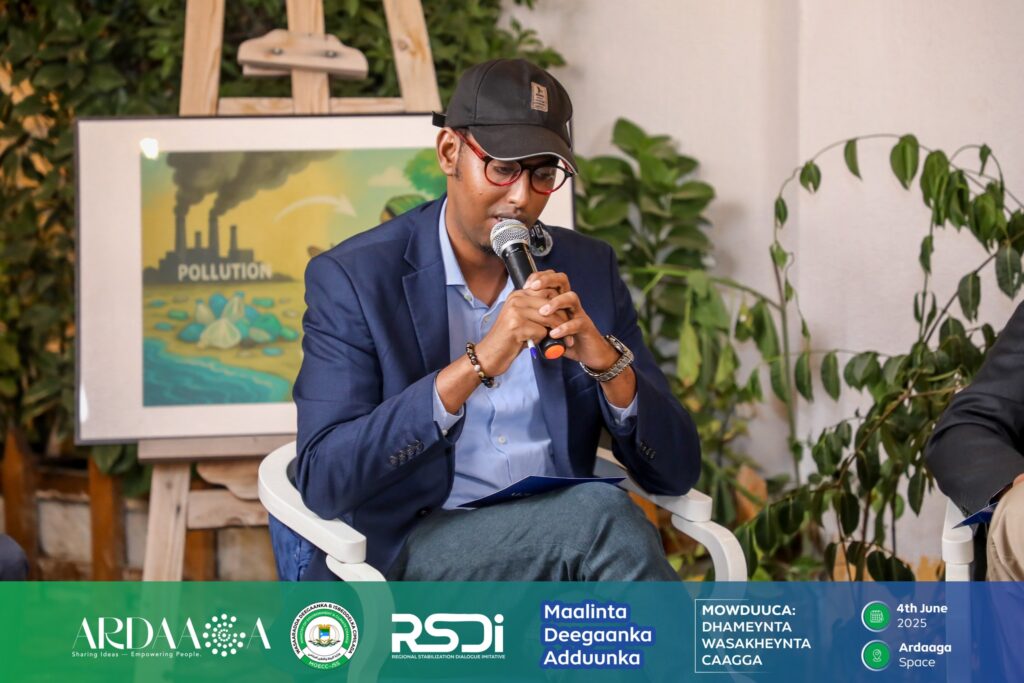
Mr. Aden Hudle, Director General of the Ministry of Environment and Climate Change, spearheaded the event by outlining the government’s decisive steps. He proudly announced that the first commercial factory producing eco-friendly alternatives to plastics is already operational, signaling a new era for environmental responsibility. A ban on the import of single-use plastics has been implemented, and existing stocks are dwindling. “We are opening a factory tomorrow,” Mr. Hudle declared, “and soon, plastics will no longer be seen in Jubaland’s environment.” This strong stance is further supported by the forthcoming enactment of specific legislation by the Jubaland Environmental Management Agency, transforming these discussions into concrete policy.
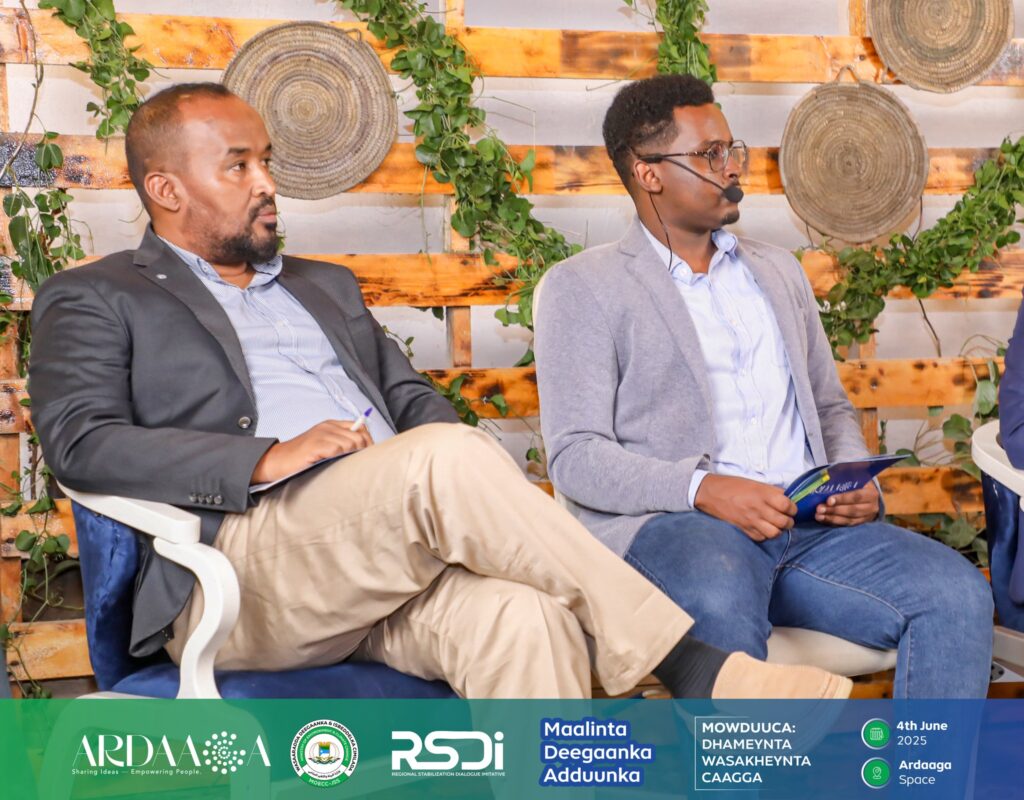
Abdirashid Arok, Founder and Head of the RSDI organization, shared a poignant account of climate change’s devastating effects on regions like Gedo, recounting severe floods and prolonged droughts. He emphasized that the establishment of RSDI was born out of a critical need to address both nation-building and climate action. Arok highlighted that while industrial nations bear significant responsibility, solutions also lie with local communities and governments. He detailed how various sectors, including agriculture, livestock, and fishing, are gravely impacted by plastics, underscoring the vital role of community consultation in implementing solutions.
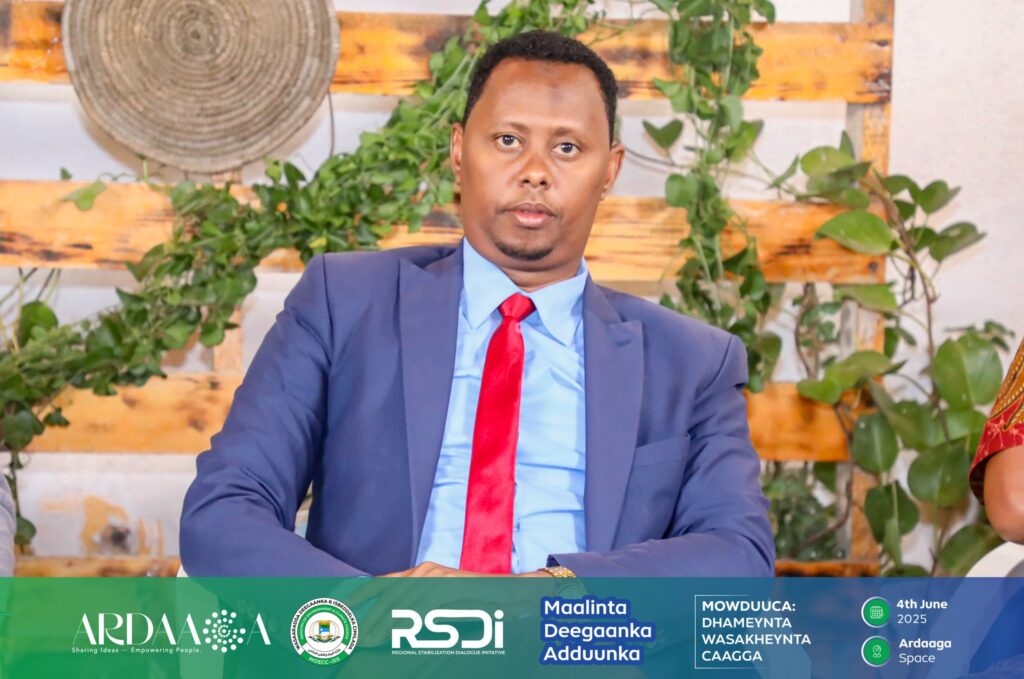
Maslah Mohamed, Director of the Department of Forestry & Natural Resources Management at the Ministry of Environment and Climate Change, provided a compelling analysis of the economic and ecological damage inflicted by plastics. He illustrated the direct harm to livestock and the paradox of a global multi-trillion dollar plastic industry causing immense local economic losses. Environmentally, plastics diminish natural beauty and severely impact both terrestrial and marine ecosystems, including vital coral reefs, and hinder agricultural productivity by contaminating soil. His proposed solutions included the launch of the biodegradable alternative factory, widespread public awareness campaigns, and the promotion of traditional crafts as sustainable alternatives.
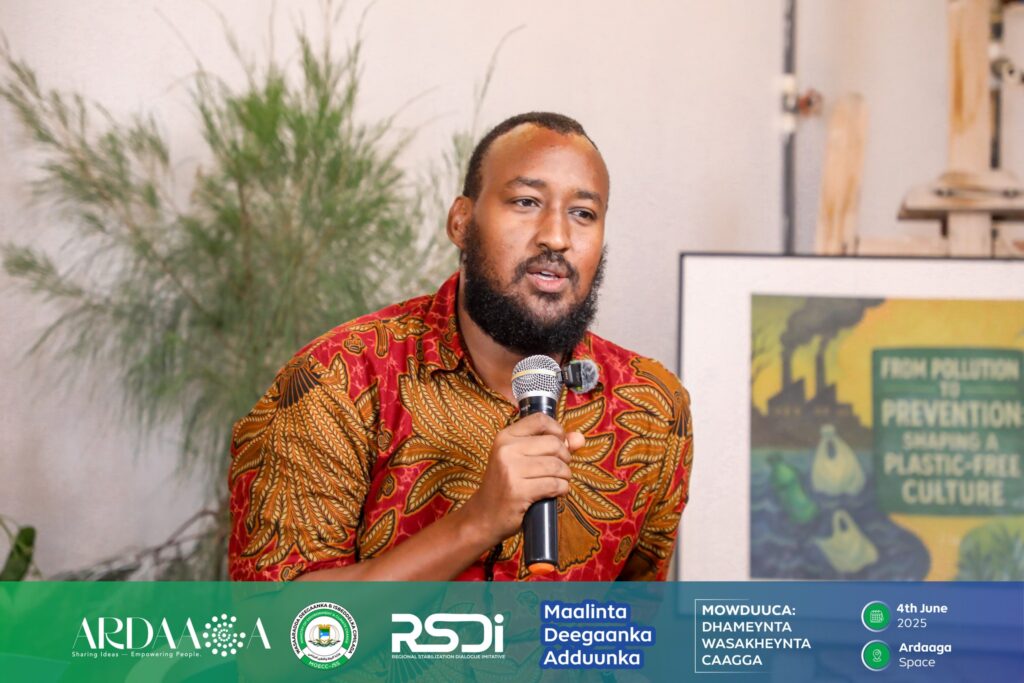
Finally, Dr. Ahmed Abdi, PhD, a Senior Environmental Expert, offered a global perspective on the pervasive issue. He highlighted the shocking statistic of 400 million tons of plastic produced annually, a trajectory he deemed unsustainable. Dr. Abdi passionately questioned, “If Alshabab banned the use of single use plastics we, as Kismayo residents, why can’t we find a better alternative for plastics?” He noted the dire consequences of plastic in marine environments, leading to reduced fish populations, and cited studies showing plastics can persist in soil for up to 900 years. He suggested incentivizing plastic collection, turning “waste into money,” and even exploring the use of plastics for durable infrastructure like roofs, while acknowledging the energy demands for industrial-scale recycling. Dr. Abdi concluded by commending Director Hudle and the government’s robust efforts in drafting specific legislation and a comprehensive waste management act.
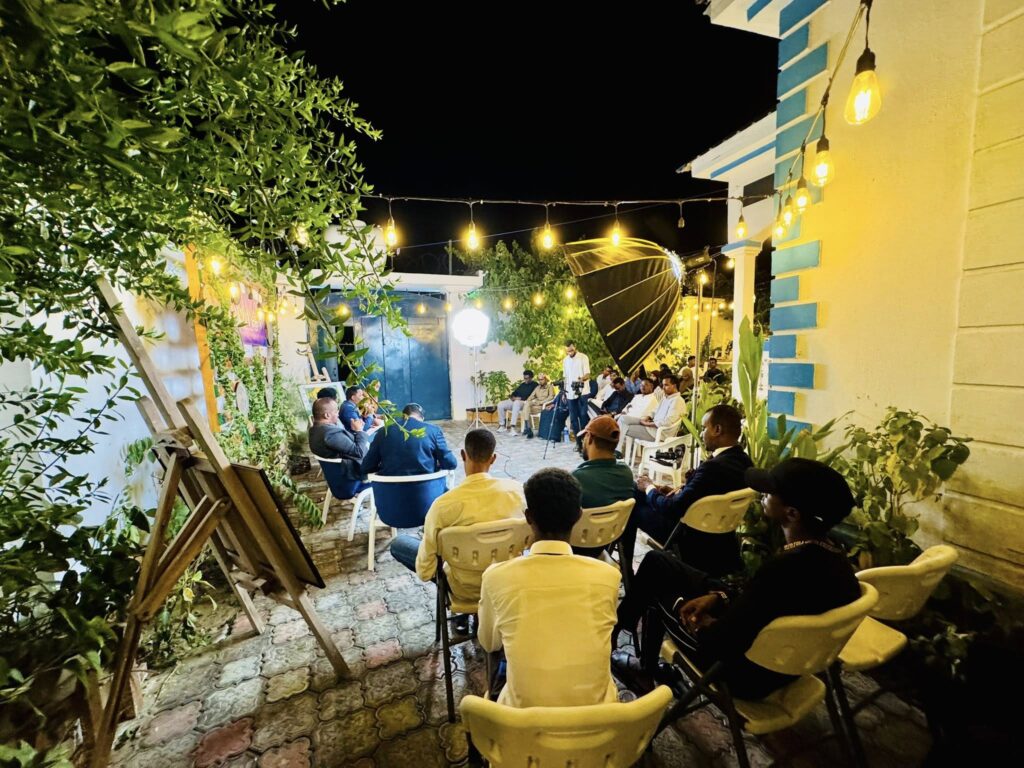
Conculasion
The program underscored a unified vision for a cleaner, healthier, and more resilient Jubaland. The dedication of government officials, environmental experts, and local organizations signals a strong, collective stand against plastic pollution, promising a brighter environmental future for the region.
